Approaches to Culture Theory
Overview
Approaches to Culture Theory is a book series that focuses on various aspects of analysis, modelling, and theoretical understanding of culture. Culture theory is seen to include and combine the approaches of different sciences – the motivation in initiating this book series was to provide a forum for discussion on contemporary trends.
Culture theory has a great role to play, not only as a set of complementary theories in the humanities and social sciences, but also as a self-description of culture that forms a factor in the dynamics of culture and science. The series thus also aims to enhance methodological and theoretical standards in cultural research. We strive towards significant improvement in both the self-understanding of disciplinary fields and in the comprehension of general theoretical models by juxtaposing and comparing data, theories, and the methods of research in an interdisciplinary environment through crossdisciplinary cooperation.
The series was launched in 2011 by the Centre of Excellence in Cultural Theory (CECT; European Regional Development Fund). CECT research groups cooperate to find new, and combine established, approaches and themes in order to advance theoretical analysis of culture. The core group of CECT includes archaeology, human geography, ethnology, communication and contemporary culture, folklore, religion studies, and semiotics.
The series is focused on publishing thematic collections of articles from all branches in humanities or social sciences studying culture.
Editorial information
Series editors: Valter Lang (University of Tartu), Kalevi Kull (University of Tartu), Tiina Peil (Tallinn University, vol. 1-4), Monika Tasa (University of Tartu)
Managing editors: Monika Tasa, Anu Kannike
Editorial board: Marek Tamm (Tallinn University), Peeter Torop (University of Tartu), Eileen Barker (London School of Economics), Regina Bendix (Georg-August-Universität Göttingen), Tom Moring (University of Helsinki), Anu-Mai Kõll (Södertörns högskola, CBEES), Roland Posner (Technische Universität Berlin).
ISSN 2228-060X (print)
ISSN 2228-4117 (online)
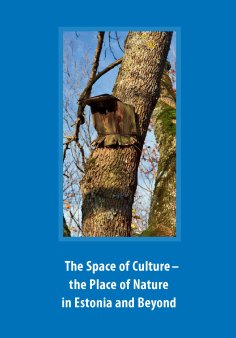
Vol. 1. Tiina Peil (ed.). The Space of Culture – the Place of Nature in Estonia and Beyond. 2011. 191 p. ISBN 978-9949-19-623-4.
This volume sets out to construct a tentative bridge between the physical and perceived (academic) worlds, between the understandings of culture and nature, their spatiality and temporality by tackling the spatiality of culture phenomena across disciplinary boundaries. The contributions are arranged around a general question of how humans organise the spaces in which they live. The book is divided according to three themes: the humanities and ecosemiotic approach to nature, constructing nature, and examining environmental and landscape change. The first provides an historical review of the humanities and expands on the more theoretical themes. The second section discusses some ways in constructing (wild) nature with specific examples. The final one illustrates the changes that various cultures have brought about in the environment examining landscapes and domestication. The space of culture and the place of nature in various cultures are discussed critically throughout the volume in a way that challenges their ontological separations and invites to discuss culture-nature relationships on a more balanced basis.
OA version available in OAPEN and DOAB
Indexing: Web of Science™ Core Collection
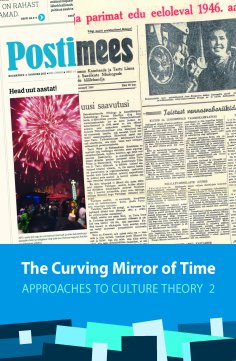
Vol. 2. Halliki Harro-Loit and Katrin Kello (eds.). The Curving Mirror of Time. 2013. 191 p. ISBN 978-9949-32-258-9 (print), 978-9949-32-259-6 (online).
This volume of articles reflects on journalism’s impact on collective memory in Estonia during the 20th century and in the onset of the 21st century. It focuses more broadly on the issues of time and temporality by problematizing the construction and actualization of chronotypes in news media, the transformations of the 20th century events in anniversary journalism as well as idiosyncracies of dealing with the past in minority media.
OA version available in OAPEN and DOAB
Indexing: Web of Science™ Core Collection
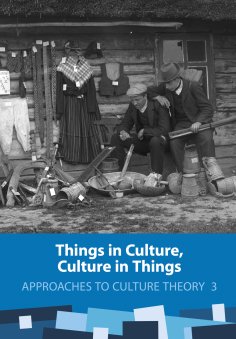
Vol. 3. Anu Kannike, Patrick Laviolette (eds.). Things in Culture, Culture in Things. 2013. 310 p. ISBN 978-9949-32-394-4 (print), 978-9949-32-395-1 (online).
This volume addresses the dynamics of materiality over time and space. In cross-cultural, multi-temporal and interdisciplinary studies the authors examine how things gain meaning and status, generate a multitude of emotions, and feed into the propagation of myths, narratives and discourses. The book is divided according to four themes: soft objects, stoic stories, consuming and the collectable, and waste and technologies. The first section discusses the meanings of the lived environment on the individual and national levels. The second section provides specific examples on the role of things in identity construction. The third section focuses on historical and contemporary aspects of consumption and collecting. The phenomena under scrutiny in the fourth section are moral dilemmas associated with and representations of dirt/waste and advancements in science and technology. Presenting diverse case studies of material culture, the volume points to rich interdisciplinary approaches in cultural theory.
OA version available in OAPEN and DOAB
Indexing: Web of Science™ Core Collection
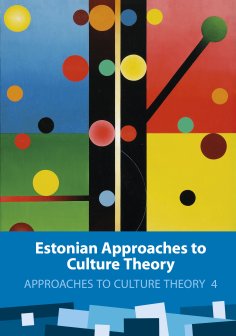
Vol. 4. Valter Lang, Kalevi Kull (eds.). Estonian Approaches to Culture Theory. 2014. 335 p. ISBN 978-9949-32-613-6 (print), 978-9949-32-614-3 (online).
The fourth volume in the Approaches to Culture Theory series is a contemporary Estonian anthology in culture theory. Most of the authors are members of the research groups of the Centre of Excellence in Cultural Theory: archaeology, cultural communication studies, contemporary cultural studies, ethnology, folkloristics, religious studies, landscape studies, and semiotics. These scholars have revised their recent work to highlight current topics in culture theory in Estonia and use theoretical analyses to advance the self-description and self-understanding of culture.
Contributors include Aili Aarelaid-Tart, Martin Ehala, Halliki Harro-Loit, Tiiu Jaago, Anne Kull, Kalevi Kull, Kristin Kuutma, Valter Lang, Art Leete, Kati Lindström, Mihhail Lotman, Hannes Palang, Rein Raud, Raul Tiganik, Peeter Torop, Ülo Valk, and Tõnu Viik.
OA version available in OAPEN and DOAB (note that due to copyright restrictions, illustrations are not displayed in the OA version)
Indexing: Web of Science™ Core Collection
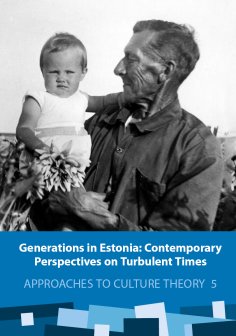
Vol. 5. Raili Nugin, Anu Kannike, Maaris Raudsepp (eds.). Generations in Estonia: Contemporary Perspectives on Turbulent Times. 2016. 350 p. ISBN 978-9949-77-055-7 (print), 978-9949-77-056-4 (online).
This volume provides a compelling insight into 20th century generational identities in Estonia. Located on the borderline between East and West, Estonia offers a particularly concentrated example of multidirectional changes. It is the first collection of studies for the international reader that offers a wide-ranging analysis of generations in Estonia, including intergenerational relations, generational dynamics, socialisation and habitus, the perception of generational identity, and generations as carriers of memory. The chapters present original approaches to generational theory and are intended for a broad spectrum of researchers, students and the general public interested in social and cultural studies.
OA version available in OAPEN and DOAB
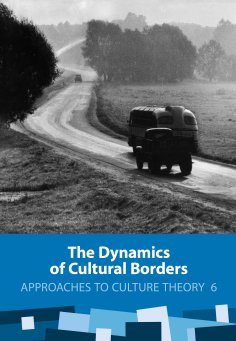
Vol. 6. Anu Kannike, Monika Tasa (eds.). The Dynamics of Cultural Borders. 2016. 260 p. ISBN 978-9949-77-082-3 (print), 978-9949-77-083-0 (online).
This volume encompasses a broad span of issues related to borders as areas of intense activity substantially contributing to the dynamics of culture.
The chapters address questions relating to the construction and reconstruction of borders, as well as the experience and representation of physical, spiritual, imagined and symbolic borders. The authors provide perspectives on emerging and dissolving borders in the past and present. Special emphasis is placed on subjective perception by asking how borders are experienced and expressed at the level of the specific community or individual. Several articles tackle dramatic and controversial issues like war, conflict between different ideologies and cultures, and remembering. The authors also explore dialectical relations between culture, social relations and landscape, and the interplay of ideological constructions and material culture.
The contributions are arranged into two sections focusing on two wider issues: how borders are drawn in landscape, religion and scientific discourse (Wandering borders), and how representations of cultural borders and border crossings have changed over time (Bordering ruptures: the dynamics of self-description). The authors of this volume come from various scholarly fields and offer innovative tools for expanding the concept of the border across disciplinary frames.
OA version available in OAPEN and DOAB
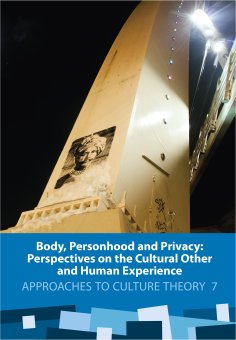
Vol. 7. Anu Kannike, Monika Tasa, Ergo-Hart Västrik (eds.). Body, Personhood and Privacy: Perspectives on the Cultural Other and Human Experience. 2017. 344 p. ISBN 978-9949-77-459-3 (print), 978-9949-77-460-9 (online).
This volume studies how the concepts of body, personhood and privacy can be expanded across disciplinary borders. Notwithstanding the diversity of empirical material and theoretical frameworks, the chapters suggest innovative tools for common key issues: dialogue with the cultural Other, the appropriation of space, and personality. Human embodiment and ethical aspects of representing and regulating cultural practices are a major focus through much of the volume. The book is illustrated with some of the finest examples of Tartu street art.
OA version available in OAPEN and DOAB
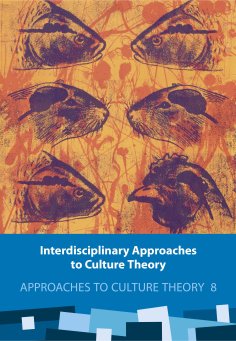
Vol. 8. Anu Kannike, Katre Pärn, Monika Tasa (eds.)Interdisciplinary Approaches to Culture Theory. 2020. 344 p. ISBN 978-9949-03-303-4 (print), 978-9949-03-304-1 (online).
The central theme of the volume is interdisciplinary experimentation. The volume includes collaborative and interdisciplinary studies on a variety of topics, from territorialisation of theory, relations between culture theory and research methodology, culture-dependent meaning formation, power relations in discourses on religion, communal heritage management, celebration practices of (national) holidays, conceptual boundaries of the ‘unnatural’, temporal boundaries in culture and cultural boundaries within archaeological material. Some of the chapters are dedicated to more general theoretical and methodological questions, while the majority of chapters use Estonian culture as source material for approaching broader cultural theoretical notions and questions. The chapters are the outcome of an experimental collaborative project aimed at bringing together representatives of various disciplines in order to find new ways to conceptualise and study their research objects or discover new study objects between disciplines. The approaches to interdisciplinary collaboration taken by the authors of the chapters are diverse. Some of them juxtapose or combine several disciplinary perspectives on common issue in order to highlight the multifaceted nature that escapes the purview of any one discipline. Some reveal similarities or complementarities between the disciplines despite the apparent differences in their metalanguage and theoretical apparatus. Others take a more integrative approach and aim to present a more holistic interdisciplinary theoretical or methodological framework. Several of the chapters re-evaluate or re-interpret existing data or case studies from the vantage points afforded by other fields, prompting questions that are not usually asked within their own field. In addition, the experimental collaboration also offered a space within which to explore issues located between disciplines and whose reoccurring presence becomes evident when diverse disciplines and studies are brought into dialogue.
OA version available in OAPEN and DOAB
